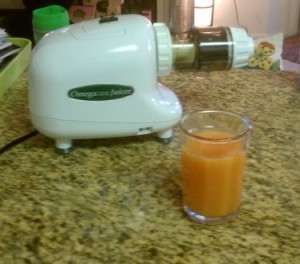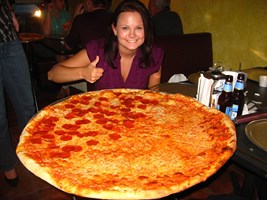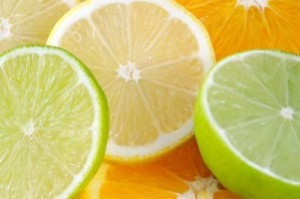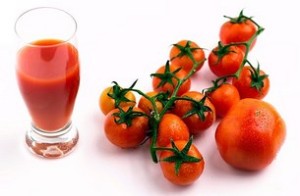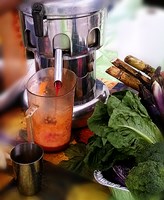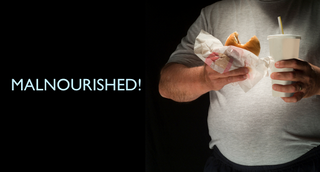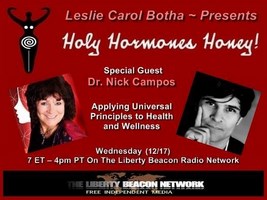 I spent last Wednesday evening being interviewed by the fascinating Leslie Carol Botha for her radio show, Holy Hormones Honey! The Greatest Story Never Told. The show’s topic was Applying Universal Principles to Health and Wellness (listen to archived show here). While I have written previously on The Four Dietary Principles, I thought I would touch on some more universal principles as they pertain to physical health and wellness here. As a quick review, the four dietary universals are:
I spent last Wednesday evening being interviewed by the fascinating Leslie Carol Botha for her radio show, Holy Hormones Honey! The Greatest Story Never Told. The show’s topic was Applying Universal Principles to Health and Wellness (listen to archived show here). While I have written previously on The Four Dietary Principles, I thought I would touch on some more universal principles as they pertain to physical health and wellness here. As a quick review, the four dietary universals are:
- Food as an energy source
- Food as a vital nutrient source
- Food as a source of hydration
- Food as a source of body composition
Remember that universal health principles are true for everybody no matter what age, gender, creed or color, while health nuances may be true for some people, or more exaggerated than true, as many cases tend to be. Take for instance the above universals—these dietary needs are true for everyone and all living things, no exceptions. Some associated nuances, however, might relate to a way of eating, like vegetarianism, or Paleo, or raw food diets, and so forth. While some people thrive on each of these diets, none is correct for all people.
So what are some other universal health principles? In no particular order:
-
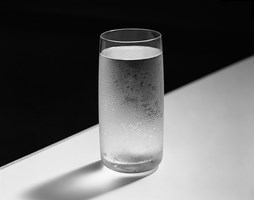 Hydration — all living things need water; life cannot exist with out the good ol’ H2O. The universal solvent is a must and so getting sufficient amounts (two liters per day minimum) is imperative.
Hydration — all living things need water; life cannot exist with out the good ol’ H2O. The universal solvent is a must and so getting sufficient amounts (two liters per day minimum) is imperative. - Movement — we live in a dimension of movement; movement is the hallmark of the physical universe. If you are not moving, you are stagnating, collecting cobwebs, degenerating, and your time in this plane will neither be long nor pleasant. Get moving regularly—stretching, contracting, and aerobically—and more than half of your physical problems will be solved.
- Touch — all living things need to exchange energy with other living things; touch is the most effective form of this energy exchange (as well as a source of comfort and security). What would happen to a plant, a pet or a child if it were rarely or never touched? We know that children deprived of touch have different levels of circulating hormones, which has major affects on brain development.
- Rhythm — this pertains mostly to cycles, although it can also refer to the universal sound (also cycles or oscillations) within space, the oceans, and of course, music. The universe has a multitude of cycles including the orbiting of planets, solar systems and galaxies. Our seasons are cyclical (sun), as are our months (moon) and days (earth). Being mindful of the changes that occur in accordance with these cycles is paramount, and operating within these cycles — sleeping more during winter months, planting seeds (goals) during spring, and so forth — will lead to the greatest growth, fulfillment and wellness.

- Rest — one such rhythmic cycle is the sleep/wake cycle. Getting sufficient rest is of utmost importance, and while everyone is different, we all need both REM and non-REM deep sleep. There was a movement some years back on conscious sleep deprivation, and I must say I have heard of nothing stupider. Many regenerative and storage/sorting processes occur during sleep. Consistent lack of sleep is one of the most damaging acts one can carry out. It is bad enough when one has trouble sleeping, but to deprive oneself when one actually can sleep is pure foolishness.
- Moderation — which can also be thought of as balance. This is the true essence of a harmonious cycle—fluctuating calmly between two poles, around the center, avoiding the extremes. Extremes are body, mind and soul disrupting, while smooth and small fluctuations are more rhythmically enhancing and growth inducing. We can apply this principle to diet, movement, touch, sex, mind-altering substances, medications, herbs, teas, tinctures, caffeine and other foreign or toxic substances. And most crucially, balance is necessary with regard to the mind.
 Balanced Mind — The Buddha said, “Whatever an enemy might do to an enemy, or a foe to a foe, the ill-directed mind can do to you even worse.” A chaotic mind is the foundation for all other “problems” and human suffering. We cannot control the circumstances of life but only our perception of those circumstances. A balanced mind is adept at being still. In stillness lies awakened perspective, insight and wholeness. All other aspects of wellness are enhanced by this most powerful of universal principles.
Balanced Mind — The Buddha said, “Whatever an enemy might do to an enemy, or a foe to a foe, the ill-directed mind can do to you even worse.” A chaotic mind is the foundation for all other “problems” and human suffering. We cannot control the circumstances of life but only our perception of those circumstances. A balanced mind is adept at being still. In stillness lies awakened perspective, insight and wholeness. All other aspects of wellness are enhanced by this most powerful of universal principles.
I am certain that these universal principles will get you farther than any particular diet, extreme fitness regimen, supplements, special pH water, or any other nuance you’ve been sold as the answer. Take it from me — I’ve studied health and wellness for going on three decades; I’ve met many of the masters. These universal principles are the common themes of all great teachings as they apply to wellness; they also happen to be common themes present throughout the entire universe in various forms. Apply these principles and forget about the fads. If you find a nuance that works for you, it is because it fits in a greater universal scheme as applied to your unique individuality; but in the end it is the universal aspect that nuance falls within that is bringing the most benefit. Think about it, and I believe you will see the truth behind this statement.


